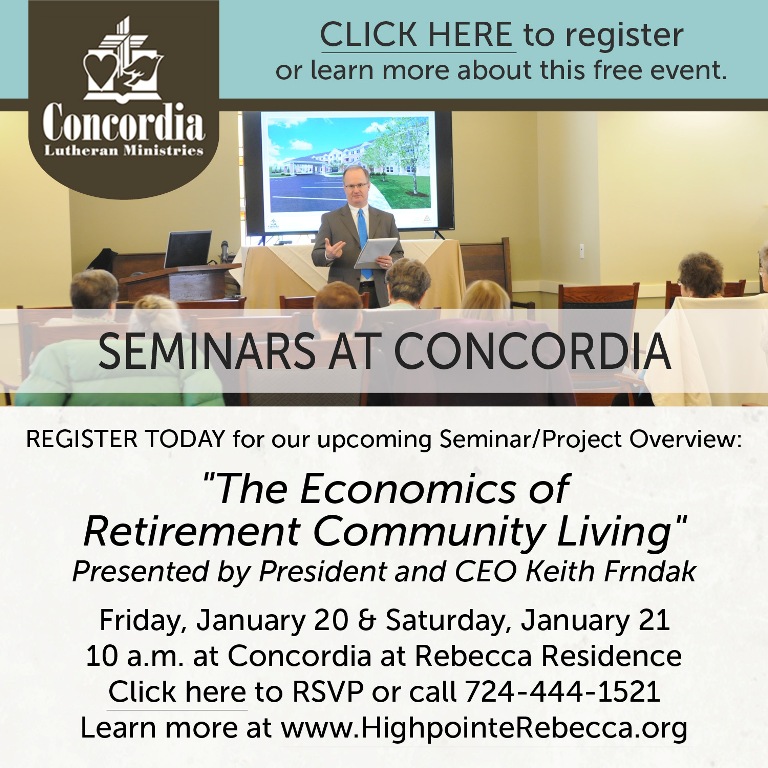Some Financial Realities of Retirement Community Living

Ask the average retiree what the biggest barrier is to possibly moving to a retirement community and many will say, without hesitation, the cost. And that person would have a point – like any other housing situation, retirement community living isn’t a small investment, especially for those on a fixed income.
Since 1981, Concordia has provided retirement living for thousands of retirees, and we can tell you that it isn’t a perfect fit for every single person, for one reason or another. However, what most people don’t understand is that it is often more affordable and practical than it appears at first glance.
Below are a few things to consider if you or a loved one has experienced “sticker shock” when looking into retirement community living. While we can’t speak for all retirement communities, the following is based on Concordia’s model and experience.
1. It’s not just the roof over your head – While hopefully the community you are considering is beautiful and well-constructed, much of your monthly fee is going to living expenses such as utilities, maintenance, transportation, social activities and intangibles like security and emergency response systems. When most people take a look at how much they are currently paying for all of these things (and other items like property tax, HOA fees, etc.), the cost of the retirement community often becomes more reasonable. Additionally, the amenities retirement community residents receive that you may not have in your house – such as security, an emergency response systems and a concierge on call – can become more important and reassuring as we age.
2. Very few surprises – The overwhelming majority of people who choose an independent living community are on a fixed income, having retired several years ago. And for those on a fixed income, one of the more frightening prospects is the possibility of major unexpected home repairs. Living in a retirement community eliminates that risk, as the bulk of your expenses that were previously unstable now remain steady. You will never again have to unexpectedly spend thousands of dollars on a new heater, roof or foundation repair.
3. Fewer “hidden costs” – As an older person living in a house, you may need assistance with things like regular home maintenance (interior and exterior), snow removal, lawn care and more. If you are currently paying someone for these services on a regular basis, it’s pretty simple to calculate how much you are spending. But if you are doing them on your own, the potential for injury exists – and that’s an impossible “what-if” to try to quantify… and not a situation you want to think about.
These are just a few of the things to consider when looking at the financial realities of retirement community living. Property taxes, utility impact, interest rate changes, entrance fee refunds and much more should be taken into account – all of which will be covered in our upcoming free tutorial.
On January 20 – 21, Concordia will host a seminar titled “The Economics of Retirement Community Living,” led by Concordia President & CEO Keith Frndak. The events, which are open to the community, will be held at 10 a.m. both days at Concordia at Rebecca Residence. There will also be an update on the construction of Highpointe at Rebecca, a Concordia retirement community set to open later this year. Valet parking and refreshments will be available. To register, call 724-444-1521 or e-mail us at RebeccaRetirement@ConcordiaLM.org by Friday, January 13. Click here to learn more about the event and register online.
Get Updates From Concordia
There is always a LOT happening at Concordia! Would you like to stay up-to-date with our news and events? Sign up for our monthly e-newsletter here.